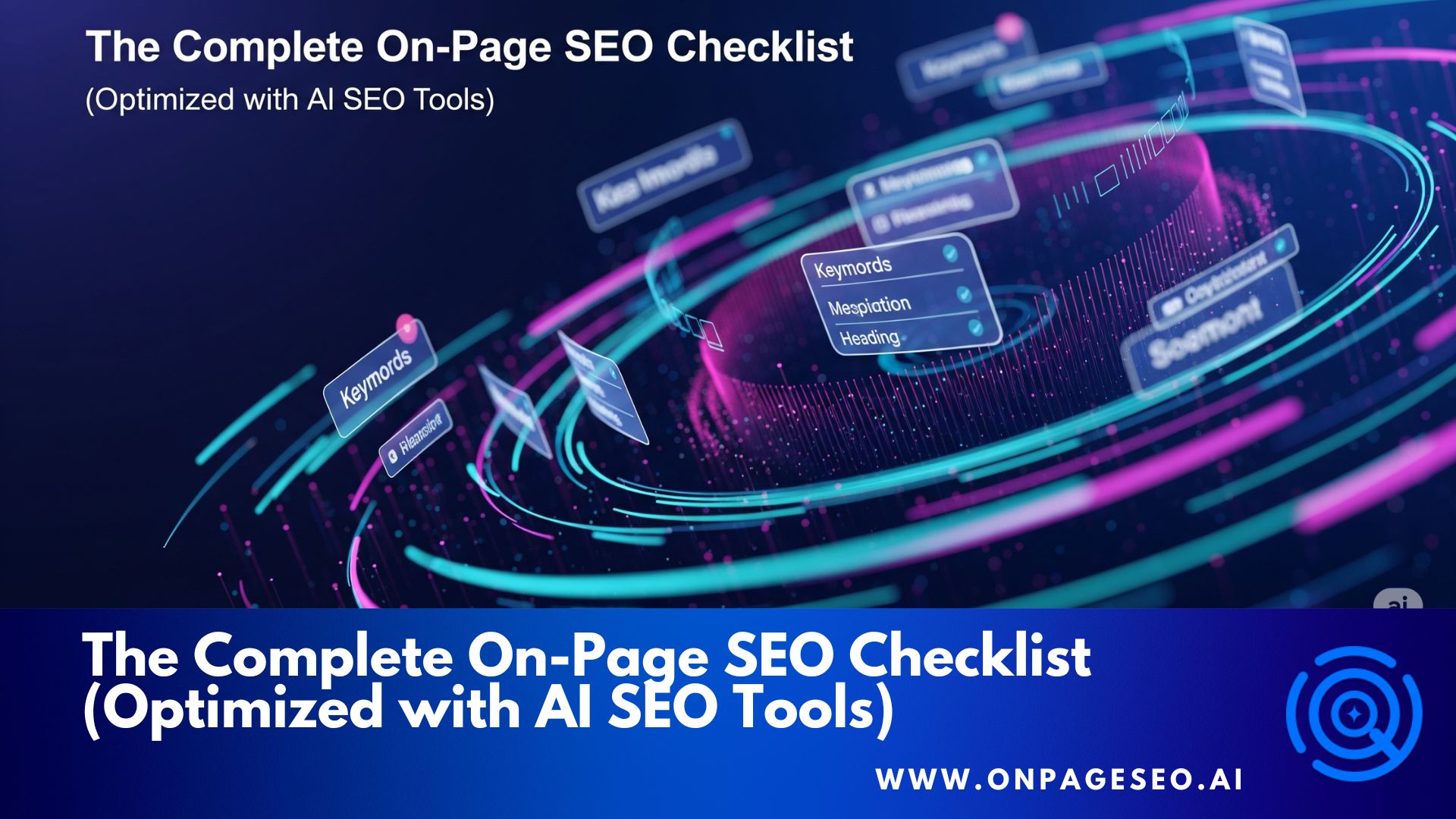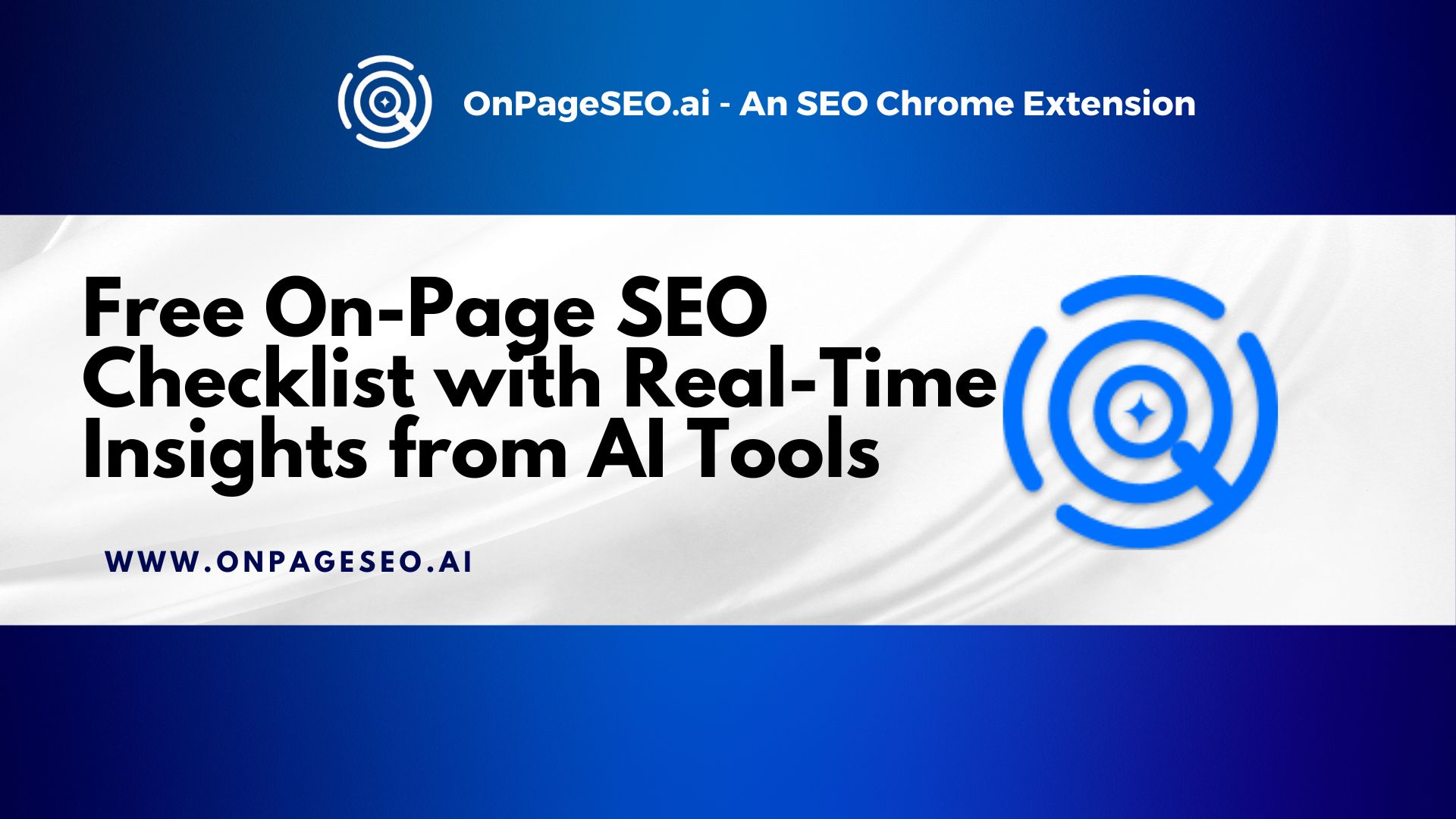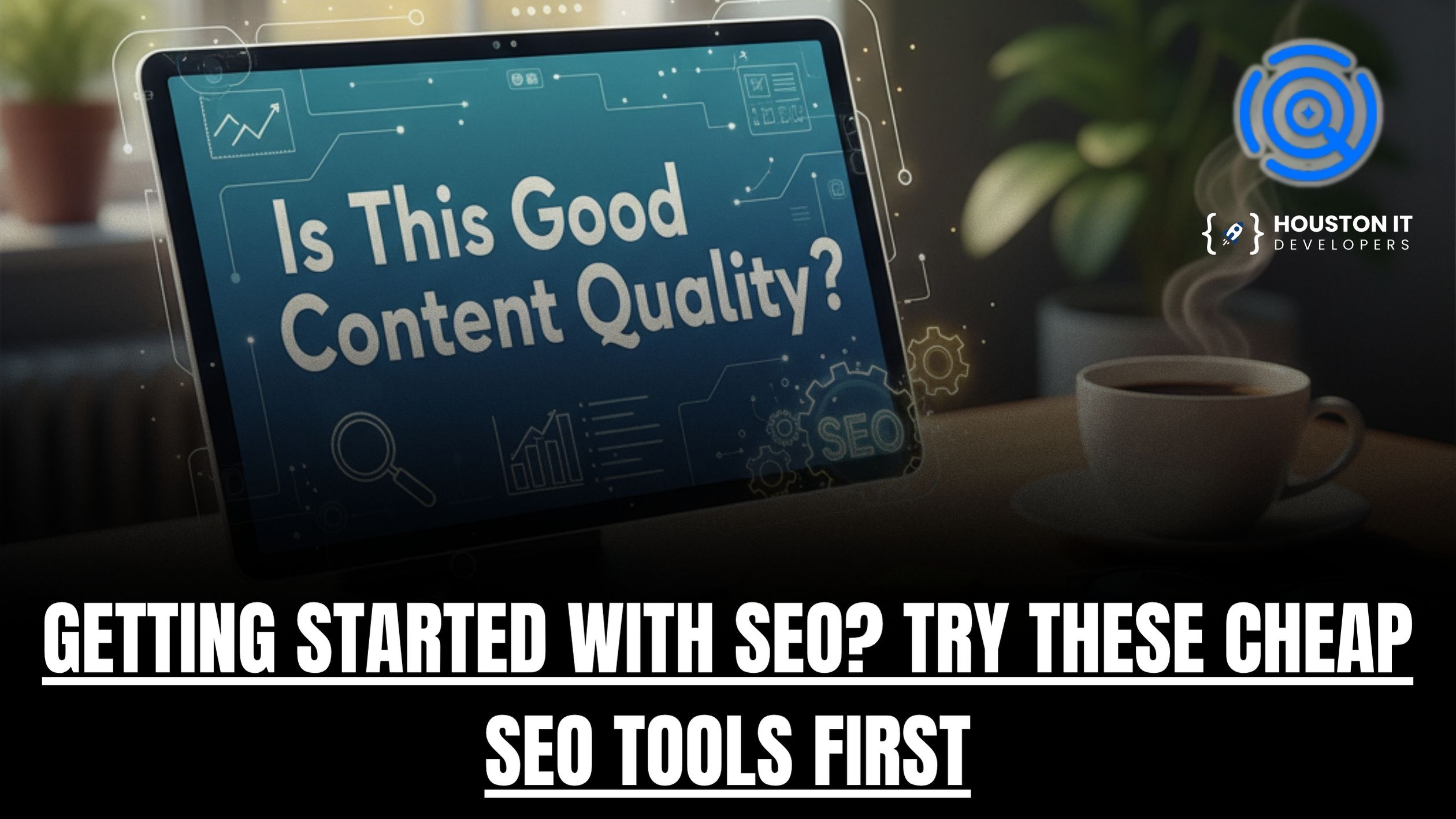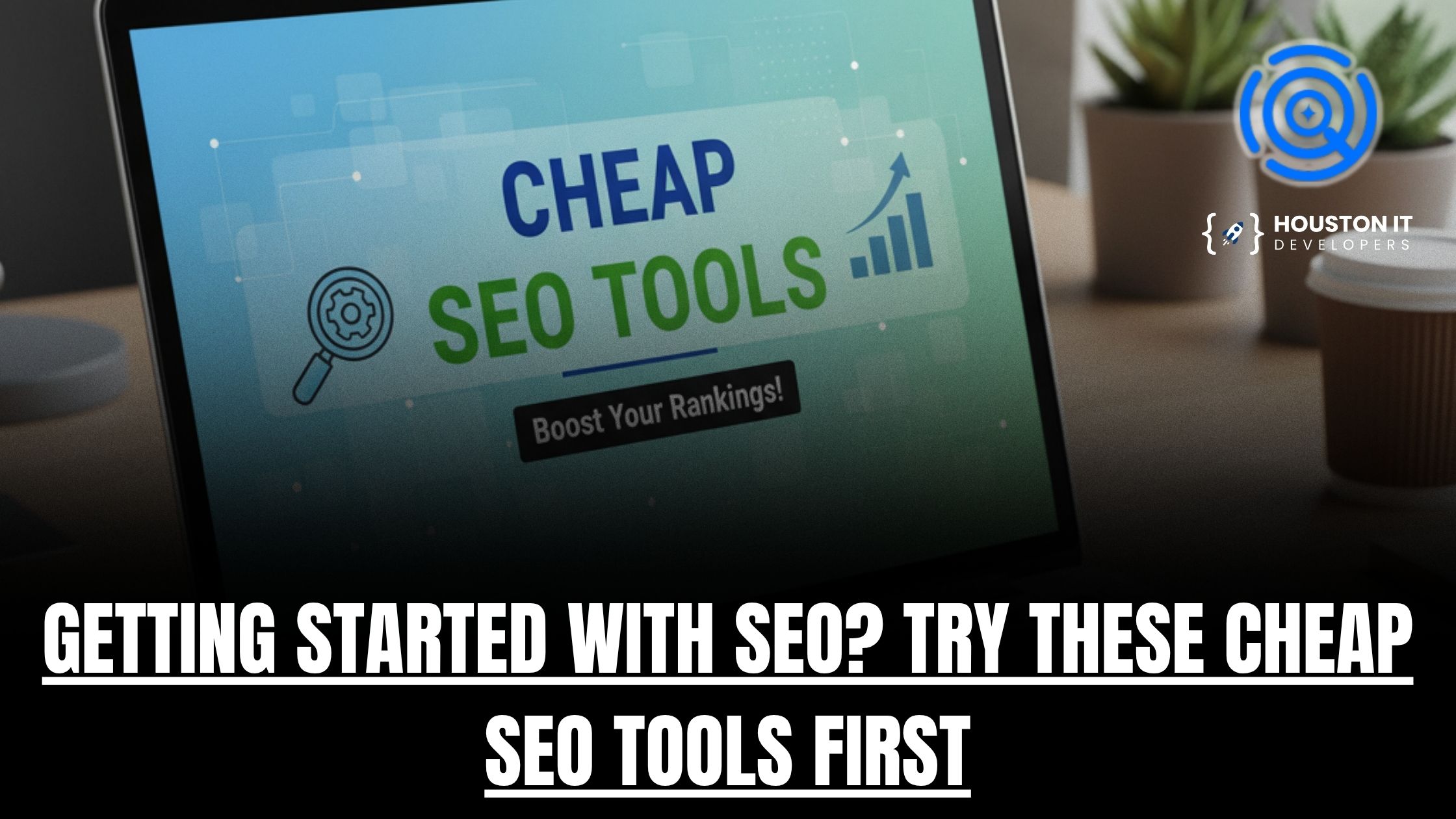Is your website truly optimized to rank in today’s AI-driven search landscape? While many marketers focus on backlinks and social signals, the foundation of strong rankings still lies in a well-executed on page SEO checklist.
Without clear structure, relevant content, and technical accuracy, even the most powerful sites struggle to perform. In fact, recent data shows that over 70% of businesses now rely on AI tools for website SEO, with more than 85% of SEO professionals integrating AI into their strategy.
As content creation becomes more competitive, using the right tools is no longer optional. The real challenge lies in understanding what to optimize, how to do it efficiently, and which insights matter most. In this blog post, you’ll get a complete checklist supported by real-time data from advanced AI SEO tools and on page SEO checkers. Whether you write, audit, or manage SEO, this guide helps ensure every page you publish is built to rank.
Why On-Page SEO Still Matters
Many marketers mistakenly assume that Google now “figures it all out” thanks to AI. While machine learning has advanced, it still relies heavily on clear, structured signals from your site to understand what each page is about. That’s where on-page SEO comes in.
Unlike off-page SEO (which is more about authority and backlinks), on page SEO is about clarity and intent. It tells search engines:
- What your page is truly about
- How it connects to search queries
- Why it deserves to rank over competitors
- Whether it serves users quickly and intuitively
What has changed is how granular and data-informed on-page optimization has become, especially with the help of AI tools for website SEO. Keyword density and H1 tags are no longer enough. Today, you need to fine-tune semantic relevance, user signals, and real-time performance indicators—all of which begin with a smarter, more strategic checklist.
The Complete On-Page SEO Checklist (Optimized with AI SEO Tools)

This on page SEO checklist integrates Google’s latest ranking factors with real-time insights from AI tools for website SEO. Each element is critical for achieving visibility, engagement, and sustainable search rankings.
| Checklist Category | Key Actions | AI-Enhanced Insights |
| 1. URL and Metadata Structure | – Keep URLs short, clean, and keyword-focused- Use unique title tags that reflect search intent- Write meta descriptions under 160 characters | AI SEO tools analyze metadata alignment and flag overuse or gaps in keyword targeting |
| 2. Headers and Content Hierarchy | – Use one H1 per page- Organize content with H2 and H3 tags- Include related keywords in headings | On page SEO checkers evaluate semantic structure and keyword variation across heading tags |
| 3. Semantic and Topical Relevance | – Add LSI keywords throughout the copy- Structure content to match user search intent- Group ideas by topic for clarity | NLP models in AI SEO tools measure topical depth and SERP alignment |
| 4. Content Depth and Authority | – Create content that demonstrates expertise- Use original insights, research, or quotes- Avoid fluff and redundancy | AI compares your page depth against top competitors in the same topic cluster |
| 5. Visual and Media Optimization | – Compress and use WebP images- Add ALT tags with descriptive keywords- Include charts, infographics, or videos for engagement | AI tools for website SEO assess image loading impact, accessibility, and keyword integration |
| 6. Internal and External Linking | – Build topic clusters with contextual internal links- Link to high-authority sources- Remove broken or irrelevant outbound links | Tools flag underlinked pages and detect thin or unbalanced link profiles |
| 7. Schema Markup and Rich Data | – Implement structured data (FAQ, Article, Product, etc.)- Validate with Google’s Rich Results Testing Tool | Structured data is essential for appearing in enhanced SERP features and snippets |
| 8. Mobile and User Experience | – Use responsive layouts- Ensure all interactive elements work on mobile- Avoid intrusive popups and hidden content | AI tools simulate mobile interactions and identify usability barriers |
| 9. Site Speed and Technical Performance | – Minify CSS/JS- Use caching and lazy loading- Target < 2.5s load times across devices | On page SEO checkers measure Core Web Vitals and provide actionable speed improvement suggestions |
| 10. Crawlability, Indexing, and Freshness | – Use canonical tags properly- Monitor robots.txt and noindex rules- Refresh outdated content regularly | AI platforms alert you to crawling issues, decaying content, and duplicate content risks |
Each section of this on page SEO checklist is enhanced through real-time feedback from AI tools for website SEO and professional-grade on page SEO checkers. The result is a leaner, smarter, and future-ready SEO process that combines technical accuracy with high-value content strategy.
How On-Page SEO Checkers Improve Accuracy
An on page SEO checklist is essential, but without accurate, data-backed evaluation, it can miss critical performance issues. This is where a modern on page SEO checker delivers value. These tools go beyond static guidelines by replicating how search engines interpret your pages in real time. The result is a more intelligent, precise optimization process that adapts to changes in search intent, algorithm updates, and competitor performance.
Basic checkers typically offer keyword placement alerts and highlight missing tags. However, advanced tools powered by AI SEO integrate Natural Language Processing (NLP), SERP analysis, and real-time scoring to provide a much deeper level of insight. The best AI tools for website SEO apply machine learning to evaluate relevance, structure, and performance across multiple ranking signals.
Advanced Features of On-Page SEO Checkers:
| Feature | Description |
| NLP-Based Topic Coverage Scoring | Tools like Surfer analyze your content’s semantic depth by comparing it to top-ranking pages. Scores reflect how thoroughly a topic is covered. |
| Readability Mapping by Industry | AI evaluates your content’s complexity and flow, matching it to industry-specific readability standards to improve user experience and dwell time. |
| Structured Data Validation | Checkers identify missing or incorrect schema markup, helping you unlock enhanced SERP features such as rich snippets, carousels, and FAQs. |
| Mobile Performance Simulations | Simulates how your page performs on mobile devices. Detects slow load times, unresponsive elements, and poor mobile layout that can affect Core Web Vitals. |
| Over-Optimization and Cannibalization Alerts | Flags keyword stuffing, excessive internal linking, or competing pages targeting the same keyword, which can harm overall site performance. |
| SERP-Based Content Gap Analysis | AI SEO platforms compare your content with live search results to reveal missing subtopics, headings, or entities that top-ranking competitors are covering. |
| Real-Time Performance Benchmarks | Content is evaluated against ongoing SERP trends to predict how likely it is to rank, helping prioritize high-impact improvements. |
Using a smart on page SEO checker streamlines the audit process, eliminates guesswork, and ensures each item on your on page SEO checklist delivers measurable results. These AI tools for website SEO bridge the gap between strategy and execution, allowing marketers to act with precision and confidence. For practical ways to apply these tools and correct common site issues, explore using on page SEO analysis tool to fix common seo mistakes.
Top AI Tools for Website SEO

As SEO gets more competitive, content teams are turning to AI SEO platforms for an edge. These tools reduce manual work and bring precision to every phase of content production.
Here are some of the most powerful AI tools for website SEO, each with its own strength:
1. Surfer SEO – Ideal for content writers, Surfer uses AI to compare your draft to top results and gives real-time feedback on structure, keywords, and missing terms.
2. Frase – Builds outlines and content briefs based on SERP analysis. It even generates drafts using GPT-based models tuned to SEO priorities.
3. Clearscope – Provides a simple content grading system powered by IBM Watson. Especially useful for teams managing writers at scale.
4. MarketMuse – Uses AI to analyse topic authority across your entire domain. Great for large sites working on semantic depth and long-term topical coverage.
5. OnPageSEO.ai – Combines AI SEO with real-time SERP analysis. Offers keyword placement guidance, technical issue detection, and a dynamic on page SEO checklist tailored to each page’s intent and competitive environment. Ideal for those seeking automation backed by measurable results.
Each of these tools supports a more efficient and data-informed SEO workflow, helping teams produce content that not only ranks but also meets user intent. Among them, OnPageSEO.ai stands out for its blend of automation, real-time analysis, and page-specific guidance. For a closer look at how it compares with other AI-powered platforms, see the full breakdown in AI SEO analyzer tools why OnPageSEO.ai stands out.
FAQs: On-Page SEO
What does on-page SEO include?
On-page SEO includes all the elements on a webpage that affect its visibility in search engines. These include title tags, meta descriptions, URL structure, headings, keyword placement, image optimization, internal and external links, mobile responsiveness, page speed, and structured data. A complete on page SEO checklist ensures that each of these elements is optimized to align with user intent and search engine algorithms.
How to do proper on-page SEO?
Proper on-page SEO starts with understanding your target keyword and search intent. Use a reliable on page SEO checker to audit your content. Optimize your title, headings, and URL using relevant keywords. Structure content for readability, include semantic terms, and ensure your site loads quickly across all devices. Support the process with AI tools for website SEO to identify missing elements, compare with competitors, and apply advanced strategies like schema markup and internal linking.
What is the most important on-page SEO factor?
The most important on-page SEO factor is content relevance and quality. Search engines prioritize pages that directly answer user queries with depth, clarity, and accuracy. While technical elements and keyword optimization matter, content that satisfies search intent stands out the most. Using AI SEO tools can help refine this by ensuring your content covers the right topics, uses the right terms, and meets current search trends.
Final Thoughts on Free On-Page SEO Checklist
A well-structured on page SEO checklist is more than a best practice guide. It is a critical tool for ranking in today’s AI-driven search environment. As search algorithms grow more complex, outdated tactics and guesswork fall short. This guide has covered what to optimize, how to optimize it, and which AI tools for website SEO offer the most accurate insights. Every element, from content depth to mobile performance, plays a role in your overall search visibility.
Now it is time to take action. Use a smart on page SEO checker that adapts to live SERP data and gives you precise, page-specific guidance. OnPageSEO.ai delivers exactly that, with automation, content scoring, and dynamic checklists tailored to your goals.
Get started today. Sign up for OnPageSEO.ai and install the free Chrome extension to streamline audits, improve rankings, and strengthen every page you publish.



